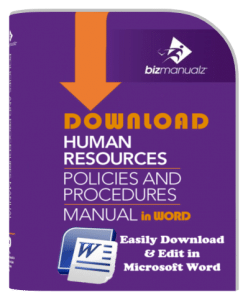How HR Departments Will Change in this Decade

Automation and artificial intelligence (AI) in Human Resources (HR) are here to stay. The future of work in the next decade relies heavily on business process management in HR and data as a way of optimizing HR processes and workflows. How HR departments will change in this decade.
The Effects of Automation – How HR Departments Will Change in this Decade
Considering the recent shift to remote, hybrid, and flexible work schedules, it’s no wonder that HR departments will need automation more than ever. All of this makes us wonder – will HR departments be able to adjust to this change? And, is there a danger of certain job roles becoming obsolete?
It’s no secret that trend will shape HR departments in the coming decade and HR will have to change the way they work. They have to accept automation and adopt tools that simplify their workload early on. Staying ahead of the curve is crucial with technology. In this decade, you’ll see the most notable effect of automation in the following HR areas:
Workforce Analytics
In the future, HR teams will likely need to adopt a tool that measures their employee management efforts. Automation has allowed for many tools that measure employee engagement and performance, collect surveys, etc.
Automation workforce tools like these will allow you to gather the data you need to make informed employee engagement strategies. And, when you boost engagement, you boost the productivity and output of your company as a whole.
Data analytics is one of the most essential fintech needs for an organization, and those who know how to leverage it are always one step ahead. Data takes the guessing out of the game and ensures your decision-making process is based on facts.
So, workforce analytics and data are two areas that CEOs and HR managers need to pay attention to in the decade that is coming.
Simplified Payroll Calculations
Automation sneaked its way into the way a company tracks and pays employees for their effort. For instance, we can now use time-trackers that measure the work hours of remote staff or shift workers and calculate compensations automatically.
Software like this can also help HR teams measure employee absenteeism, lateness, and attendance management in general.
Furthermore, instead of manually separating and listing an employee’s net vs. gross income, health and pension, and taxes paid, now you can take advantage of time trackers or a paystub generator that will automatically do the job for you. That’s a much faster way to generate a payslip. Plus, a much safer way since you reduce the chances of human error.
On the topic of payroll processing, each HR department is aware of the importance of timely payments. Prompt compensation affects your employee retention rates as well as your compliance with local labor and tax laws. Maintaining payroll compliance is crucial.
Recruiting and Screening Tools
Screening candidates is time-consuming enough as it is, but even more so since the pandemic made it virtual. Now, HR teams have to recruit, interview, and screen candidates remotely.
That’s where automation comes to the rescue with different recruiting tools or applicant tracking software that categorizes your candidates based on compatibility. Tools like these can also send automatic follow-up emails and interview reminders to help with the screening process.
Screening candidates’ resumes and looking for the best fit can be easier. We have smart readers that can compare CV data and filter out the candidates that fit best.
Additionally, many of these tools feature onboarding tools as well. According to a recent Gallup study, just 12% of employees are happy with the way their organization handles onboarding.
Having a structured onboarding process makes it easier to train new employees and helps them adjust well and find their role in the company faster.
An optimized recruitment process means fewer costs, more candidate engagement, and creative ways to reach passive candidates. And the job of recruiting software is precisely that – optimizing the hiring process.
Centralized Cloud Software
Every HR department benefits from using a cloud solution for storage and access to documentation. Cloud technology allows for one centralized storage location and prevents the accidental loss of paper documents. Additionally, it allows HR managers to give designated document access to different employees.
Keeping a company-wide HR policy manual in the cloud where everyone can access it for reference is also a great practice. A good HR cloud software can contain every single point on this list as a feature and the power to streamline and simplify many internal workflows.
For companies that have remote or hybrid employees, cloud technology is more than necessary. Managing a digital-first remote workforce means finding a way to unify and streamline the collaboration and providing centralized access.
Automated Shift Scheduling
Shift scheduling became a great HR challenge with the rise of the pandemic. That’s because a large portion of their workforce worked remotely or on a hybrid schedule. Planning schedules to account for everyone’s availability, without missing or overlapping shifts is close to impossible without tools.
According to a 2021 Microsoft work trend report, hybrid and flexible work schedules are here to stay. So, eventually, every HR department will have to start using a shift scheduling tool to make their jobs easier.
AI-powered tools like these can help you schedule your staff correctly, without overlaps, and on time. Plus, they will help you quickly fill out a shift in case of last-minute cancellations and find the most appropriate worker for the job.
HR Departments Will Change in this Decade Because of Automatization
Investing in technology is important for every company that wants to adjust to the new way of working. And, since the HR department is the one responsible for internal workflows and employee management, it has to start from within.
Let’s sum up the effects of automation for an HR department in the future:
- Replaces repetitive or admin tasks
- Frees up time to focus on strategic HR tasks
- Improves data-based decision making
- Saves costs in the long-run
- Helps you improve employee engagement
- Streamlines scheduling and time-tracking
- Helps you recruit without a bias
We can now safely conclude that the effects of automation will drastically change HR in this decade, but for the better. Companies should embrace these new changes and technologies and see them as a helping hand, not as competition.
Author Bio: Samantha Clark is a Warrington College of Business graduate and she works for the professional accounting firm – ThePayStubs. She handles all client relations with top-tier partners and found her passion in writing articles on various finance and business-related topics.















Leave a Reply